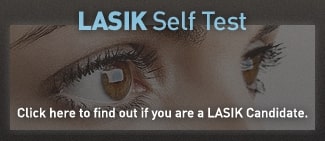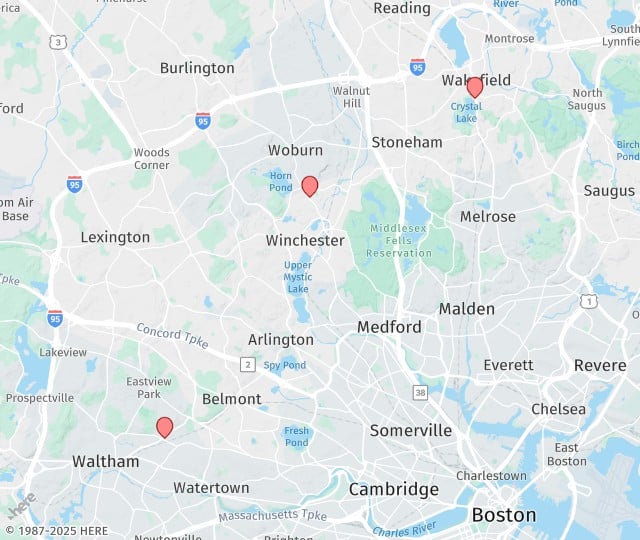Patients with poor vision often seek to have refractive surgery to help them see better without the need for glasses or contact lenses. Refractive surgery refers to any procedure designed to improve a patient’s uncorrected vision, by which we mean, the quality of one’s eyesight without the help of glasses or contact lenses. LASIK is by far the most common refractive procedure performed today, but there are other refractive procedures that may be more suitable for certain individuals. Typical procedures directed primarily at reducing one’s dependence on glasses include the Excimer laser-based procedures: LASIK, PRK, and LASEK.
What Is LASIK?
LASIK is the most common laser refractive surgery performed to correct vision related problems. LASIK surgery is a 2-step procedure. Since the F.D.A. approval of the Excimer laser in 1995, Dr. Evans has been performing LASIK in the Greater Boston area – correcting vision disorders such as nearsightedness, farsightedness, and astigmatism.

Dr. Evans and Dr. Barsam use a specialized Femtosecond laser to create a thin clear flap of tissue in the center of the cornea. They are then able to apply the Excimer laser to reshape your cornea and correct your prescription. After having this treatment, most patients who normally require glasses or contact lenses to see distant objects can then see clearly without such aides.
Can LASIK Eye Surgery effect Dry Eyes?
Many patients who desire LASIK surgery have dry eyes. They have become intolerant of their contact lenses because the dryness makes them uncomfortable. LASIK occasionally worsens dry eyes, but typically, this is temporary and usually can be treated with frequent artificial tear lubrication. In special cases of severe dry eye, special punctal plugs that are placed in the lower eyelid tear ducts can cause significant improvement in dryness. These are easily removed in the office once the dryness resolves, or they can be left in place permanently.
Candidates For Laser Eye Surgery
The only way to know if you are a LASIK candidate is to schedule a consultation with a Board-Certified Ophthalmologist. North Suburban Eye Associates, P.C. will provide patients with a thorough evaluation at our Wakefield or Waltham offices, before making any recommendations on laser vision correction.
During the consultation, a complete eye evaluation will take place so that the doctor can determine if you are a strong candidate for LASIK. There must be no signs of ocular diseases present, such as signs of glaucoma or cataracts. If the doctor does not think you are qualified for LASIK, he or she will recommend vision correction alternatives.
A Personalized Approach To Laser Vision Correction
Your vision is unique – as personal as your fingerprint or your DNA. Much like a fingerprint, no two eyes are exactly alike. VISX WaveScan® Technology provides your eye doctor with a map of your eye.
Alternative Procedures
For some patients who are not good candidates for LASIK in Greater Boston, several different laser eye surgery procedures are available to correct refractive errors such as nearsightedness, farsightedness, and astigmatism.
PRK, or Photo-Refractive Keratectomy was the first F.D.A approved type of laser vision correction. This technique reshapes the surface of the eye by flattening the surface contour of the eye rather than doing so under a “flap”. Another procedure, LASEK is similar to PRK but preserves the first layer of the cornea in order to minimize discomfort. Both PRK and LASEK may be suggested in certain patients with very thin corneas where LASIK would not offer the best clinical results.

What kind of results can I expect?
Immediately following your surgery, you should expect some discomfort, redness, itchiness and even a slight burning sensation. Fluctuations in your vision can occur after surgery and your vision may be blurry, but you can expect these symptoms to resolve after a couple days. At the same time, it may take additional time for your eye to fully heal and the swelling to go down.
Is Laser Vision Correction Done On Both Eyes At Once?
Some patients may prefer to have each eye done on different days. In most cases, however, both eyes are done on the same day. This avoids the period of imbalance that occurs if one eye still needs correction while the other one doesn’t. This is a discussion that you should have with the surgeon so that you can decide what is best for you.
LASIK Recovery
Recovery is relatively quick considering the nature of the surgery. The first couple of hours after surgery, the eye(s) may feel somewhat irritated, with a burning sensation and some tearing. Vision is typically blurry during this time. Most patients nap for a couple of hours to rest the eyes. After several hours, the irritation goes away and the vision begins to clear. The day after surgery, most irritating sensations are completely gone and vision is remarkably clear.
Active sports should be postponed for two weeks or until the eye is fully healed, unless protective eye wear is approved by the surgeon. Swimming, hot tubs and saunas should be avoided, as well. After full recovery, normal activity can resume, and the ability to play sports without glasses makes them more enjoyable for many patients.
Will I Need Glasses After Laser Vision Correction Surgery?
There are never any guarantees with medical procedures. LASIK is no different. Not everyone will achieve perfect vision with LASIK but almost all will experience drastic improvements. It is important to know that LASIK does not eliminate the need for reading glasses. Beginning at around the age of 40, a condition called presbyopia usually begins, requiring reading glasses or bifocal correction. The laser cannot correct presbyopia at this time; however, there are some promising treatment options on the horizon.

With a custom LASIK procedure, our eye doctors use a wavefront-guided LASIK treatment to achieve 20/20 vision without unwanted symptoms such as halos or nighttime vision issues. Currently, we offer custom Lasik evaluations at our Wakefield and Waltham locations.
Is LASIK surgery covered by insurance?
Since LASIK is often considered an elective procedure, it is not typically covered by insurance. At North Suburban Eye Associates, we offer no and low-interest rate financing for LASIK surgery through CareCredit so you can restore your vision without breaking your monthly budget.
Schedule A Consultation
Those with an interest in decreasing their dependency on glasses or contact lenses are encouraged to consider laser vision correction, give us a call at 781-245-5200 to schedule a consultation. North Suburban Eye Associates serves patients in the Greater Boston area with our Wakefield, Winchester and Waltham, MA locations. You can also fill out the "Get in Touch" form below and our staff will help you schedule an appointment with one of our skilled doctors. We look forward to serving you!


